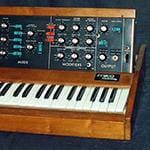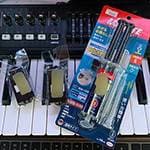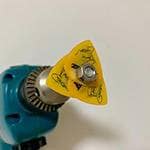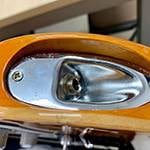Hello, this is Conservario.
This time, I’d like to share my thoughts on who might be well-suited for the ukulele.
I hope this serves as a helpful reference for those thinking of starting the ukulele!
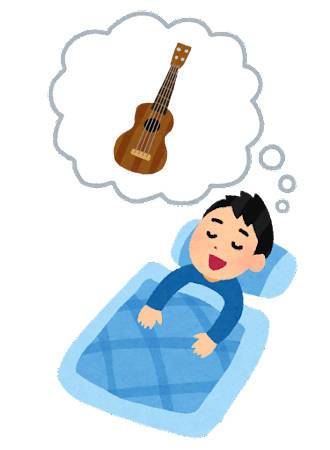
■ ①For Those with No Experience in Music or Instruments
“I’ve never really played an instrument, and aside from school music classes, I haven’t done much…”
Actually, such people are perfect for the ukulele!
The fact that you’re even considering starting the ukulele shows that you have a love for music. Compared to someone with zero interest in music or instruments, just having some curiosity about the ukulele means you’re already well-suited for it.
Rest assured and go ahead—start your ukulele journey!
Often, serious individuals tend to overthink, wondering, “Is it okay for me to start the ukulele? Will I be able to play it?” If you’re serious and love music, you’ll definitely be able to play the ukulele.
There’s no instrument more suitable for beginners in music or instruments than the ukulele.
While there are other instruments that are simpler to play or more niche, they often lack resources or instructional materials due to their obscurity. This is where the ukulele truly shines—it’s beginner-friendly and backed by plenty of guides and tutorials.
So, before your enthusiasm for music and the ukulele fades, dive right in and start playing!
■ ②For Those with Experience in Guitar, Bass, Piano, or Other Instruments
The ukulele is an instrument that even beginners can learn to play, but those with prior experience in other instruments tend to pick it up more smoothly—especially guitar players.
Since the ukulele is a string instrument like the guitar, and involves pressing chords and playing them, those familiar with such techniques will find it easier to adapt. Additionally, ukulele sheet music often uses diagrams or tablature, which should feel familiar to guitarists.
While the feel, playing posture, and technique differ slightly, once you get accustomed to these differences, you’ll be able to play songs on the ukulele fairly quickly.
However, there are a few things to watch out for:
Because the ukulele feels similar to the guitar, small differences between the two can cause confusion. For example:
- If you’re asked to play a D chord in the open position on the guitar, the tab would be XX0232.
- This is a common chord shape many guitarists will recognize.
- But if you use this exact same shape on the ukulele, it produces a G chord!
This difference arises because the tuning of the ukulele is different from the guitar.
For those who memorize chords by shape, these discrepancies can feel awkward or tricky at first. I personally struggled with this initially, but I eventually found it easiest to set aside my guitar knowledge entirely when playing the ukulele. Switching mindsets allowed me to play the ukulele more accurately and comfortably.
If you embrace these differences and enjoy exploring them, you’ll master the ukulele in no time—even with a guitar background!
■ ③For Those Who Have Given Up on an Instrument Before
No matter what instrument you tried or why you stopped, your experience of buying an instrument, practicing, and ultimately quitting is valuable. That’s why I highly encourage you to give the ukulele a try!
There are countless reasons people quit instruments:
- Issues with noise or practice space
- Lack of time
- Lack of support or understanding from others
- Financial reasons
But the number one reason, by far, is “It’s too hard, so I gave up.”
What feels "difficult" depends on the instrument or type of music you want to play, but in most cases, the problem lies in the approach to practice and mindset.
For instance, in my lessons, I’ve never had a single student quit because they couldn’t play the song they wanted. Why? Because I simplify songs to make them easier to play, ensure they don’t develop bad habits, and practice with them step-by-step.
Most people who start learning an instrument do so on their own. However, self-study has a major drawback:
- You don’t know the right way to practice.
- You don’t know what “success” should look like.
Questions like, “What should I practice?” or “Do I have to play every note perfectly?” often make practice feel overwhelming. Many people end up quitting because it feels too hard.
If you don’t have access to someone to guide you—like a teacher or a music school—then it’s essential to rethink your approach and practice habits.
Music and instruments are supposed to be fun and enjoyable! You likely started playing because it looked interesting or exciting. If it became too hard or boring and you gave up, that simply means your approach wasn’t the right fit.
Why not try starting over, this time with an emphasis on fun and enjoyment?
The ukulele is easy to play, versatile for any kind of music, and a perfect choice for rekindling your musical journey.
PLAYTECH / PUK350 Concert Rosewood Ukulele
The “sound & person” column is made up of contributions from you.
For details about contributing, click here.





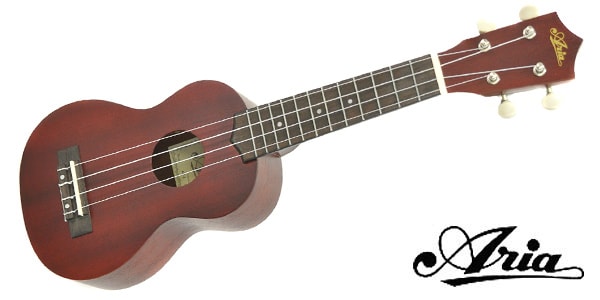
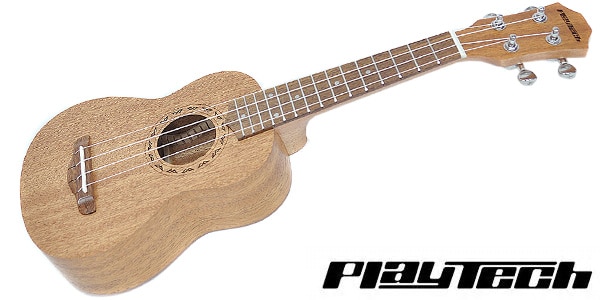
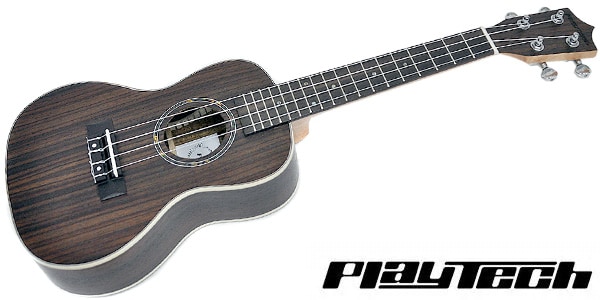


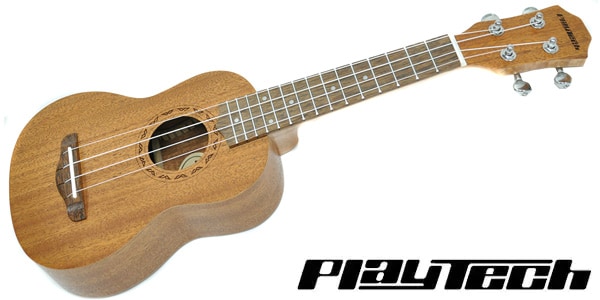

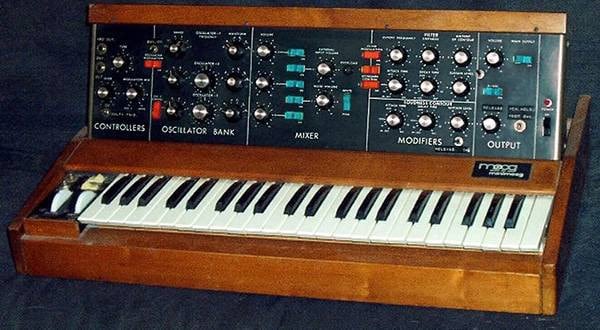
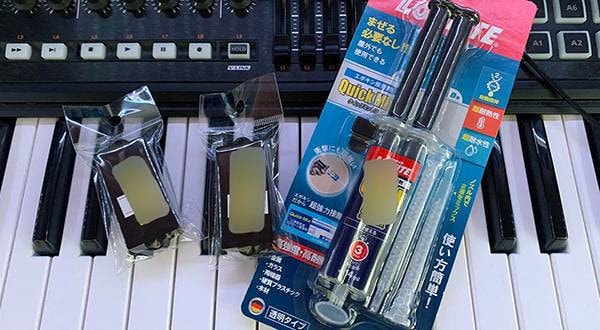
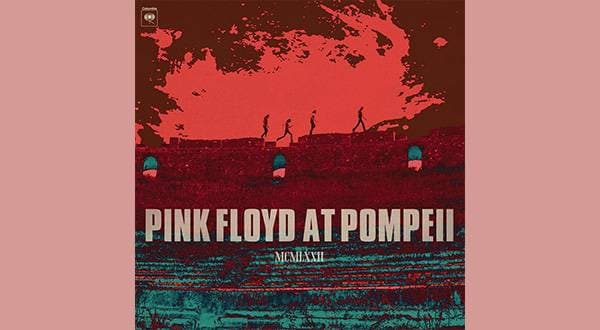
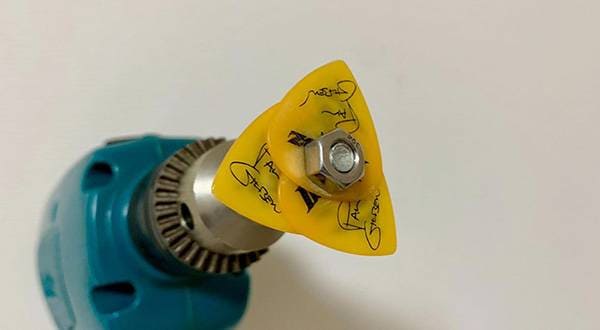
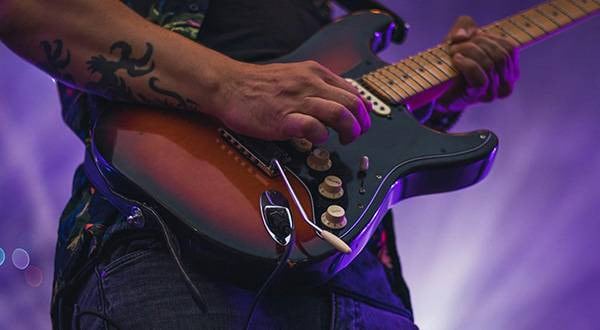
![[Enjoy the Ukulele Even More!] Listen to Skilled Musicians Play](/contents/uploads/thumbs/5/2022/3/20220328_5_17282_1.jpg)
![[Enjoy the Ukulele Even More!] Are You Practicing A Lot, But Still Can’t Get the Chords to Sound Good?](/contents/uploads/thumbs/5/2022/3/20220328_5_17277_1.jpg)
![[Enjoy the Ukulele Even More!] Mastering Downstrokes and Upstrokes](/contents/uploads/thumbs/5/2022/3/20220328_5_17270_1.jpg)
![[Enjoy the Ukulele Even More!] What to Do When Your Favorite Song Seems Too Difficult](/contents/uploads/thumbs/5/2022/3/20220328_5_17261_1.jpg)
![[Enjoy the Ukulele Even More!] How to Make the Most of Instructional Books and Lesson Videos](/contents/uploads/thumbs/5/2022/3/20220325_5_17245_1.jpg)
![[Enjoy the Ukulele Even More!] Hacks to Keep Your Strings Going Longer](/contents/uploads/thumbs/5/2022/3/20220317_5_17094_1.jpg)
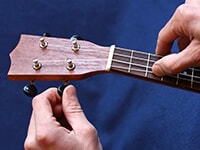 ウクレレのチューニング方法
ウクレレのチューニング方法
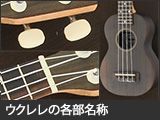 ウクレレの各部名称
ウクレレの各部名称
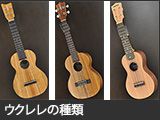 ウクレレの種類
ウクレレの種類
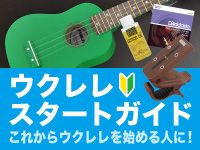 ウクレレスタートガイド
ウクレレスタートガイド
 めちゃラク!ギター講座
めちゃラク!ギター講座
 ウクレレ初心者講座
ウクレレ初心者講座
